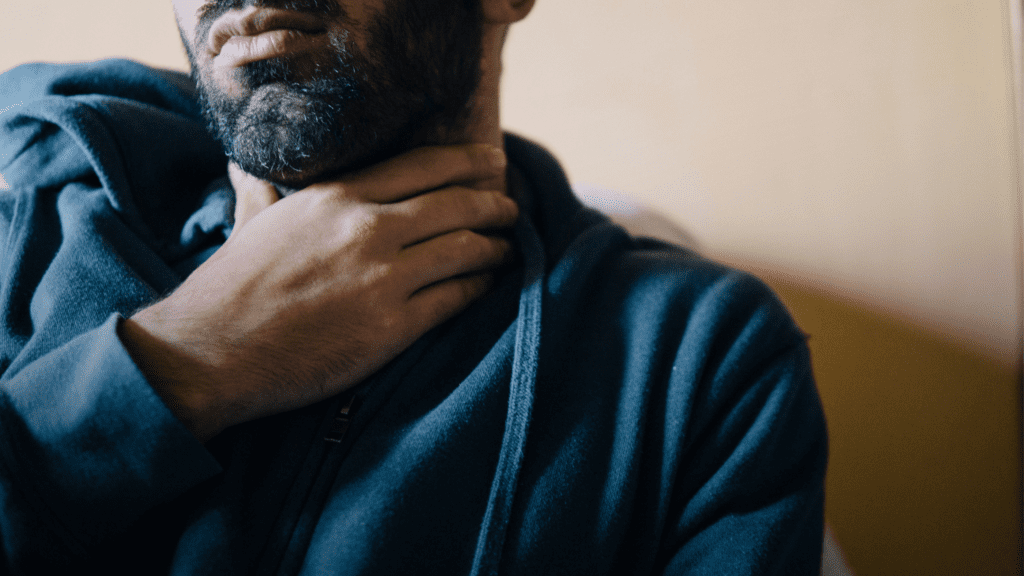
Head and neck cancer is a term that covers a range of cancers that can have a big impact on everyday life.
Here are 6 important things to know.
1. What is head and neck cancer?
Head and neck cancer starts in the tissues and organs of the head or neck - this includes the mouth, throat, nose, sinuses, salivary glands, voice box (larynx) and some cancers of the skin. These areas are essential for breathing, eating, and speaking, so cancer and treatment can affect these functions.
2. How common are head and neck cancers?
Each year almost 6,000 Australians are diagnosed with head and neck cancer. It is more common in men than women, and usually affects people over 40 years old, but it can occur at any age.
Finding cancer early usually means it's easier to treat. That's why it's important to know the signs and speak to your doctor if something doesn't look or feel right.
3. What are the risk factors?
There are a few things that can raise your risk of developing head and neck cancer. The biggest risk factors are:
- Smoking and alcohol - The biggest risk factors, especially when combined.
- Human papillomavirus (HPV) - A virus linked to some throat cancers.
Other smaller risk factors include:
- Excessive sun exposure - Too much sun, especially without sun protection on lips can lead to increased risk of lip and other skin cancers of the head and neck.
- Workplace exposure - Long-term contact with certain chemicals, wood dust and asbestos.
You can reduce your risk by quitting smoking, cutting back on alcohol, protecting your lips from the sun, and getting the HPV vaccine.
4. What are the symptoms?
Head and neck cancers can look different depending on the type of cancer. The symptoms are also common for many other illnesses that are not cancer, but there are some signs to watch for:
- A sore throat or hoarseness that doesn't go away
- A lump or swelling in the mouth, jaw, face, head or neck
- Difficulty swallowing or chewing
- Discolouration or a sore in the mouth or on the tongue that doesn't go away
- A blocked ear or nose that doesn't go away
If you have any of these symptoms for more than a few weeks, see your doctor. Learn more about head and neck cancer symptoms.
5. How is it diagnosed?
If your doctor thinks something might be wrong, they may do a few tests to find out more:
- Physical examination - Checking the mouth, throat, and neck for changes.
- Imaging scans - CT, MRI, or PET scans.
- Biopsy - Taking a small sample of tissue.
The earlier cancer is found, the more treatment options you may have - and the better the chance of recovery.
6. Who will be in your care team?
If you are diagnosed with head and neck cancer, you'll be looked after by a team of health professionals who all play a critical part in your care:
- Head and neck surgeons - Specialists who perform surgery.
- Medical and radiation oncologists - Doctors who plan and deliver treatments.
- Speech pathologists - Helping with speaking and swallowing difficulties.
- Dentists - Managing oral health before and after treatment.
- Dietitians - Offering nutrition advice to help maintain strength.
Head and neck cancer can be challenging, but early detection and treatment can improve outcomes. If you're concerned about symptoms or risk factors, don't hesitate to talk to your doctor.






